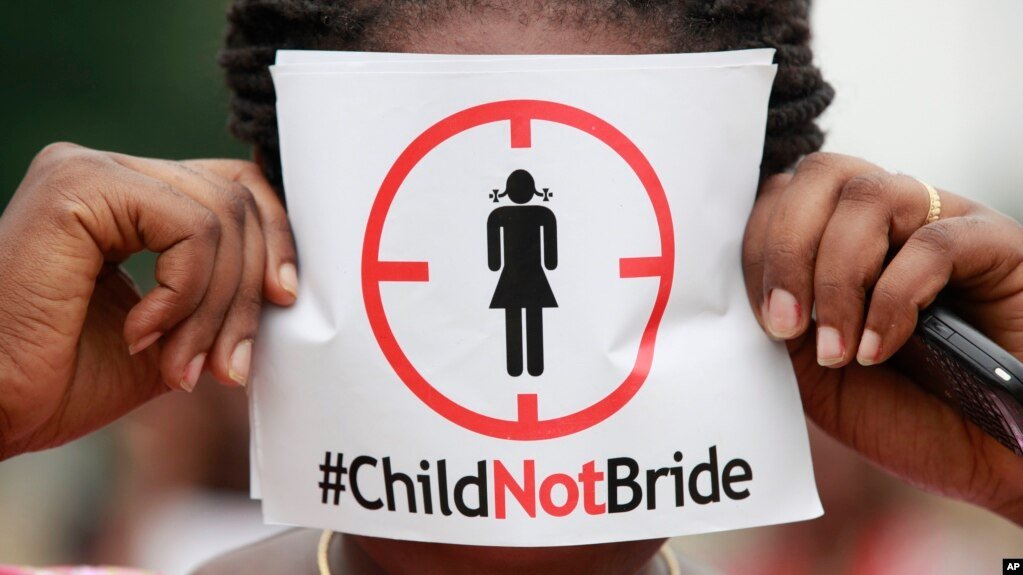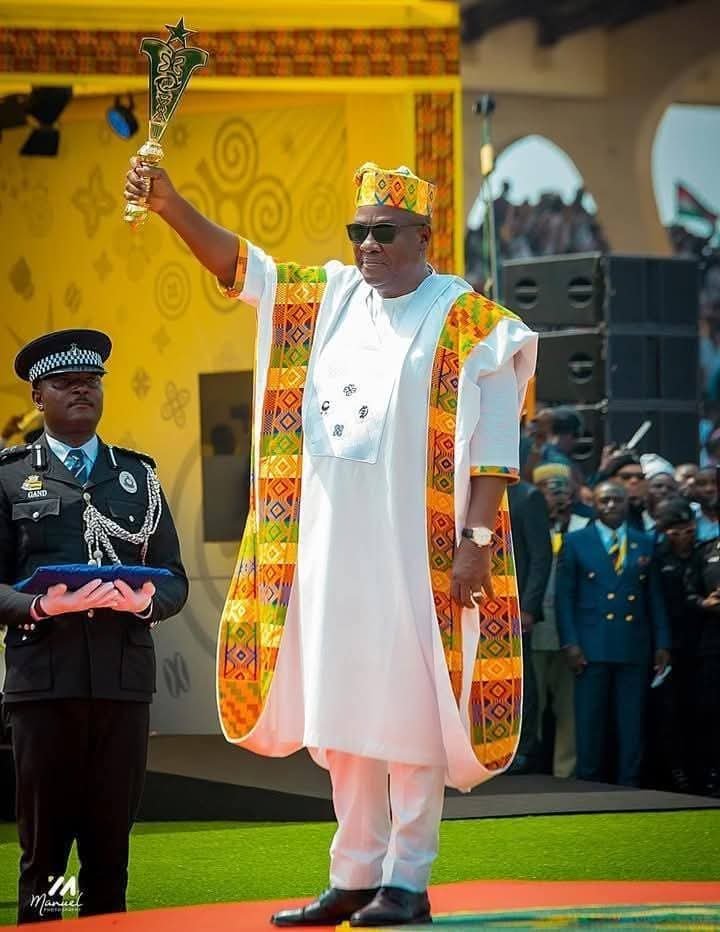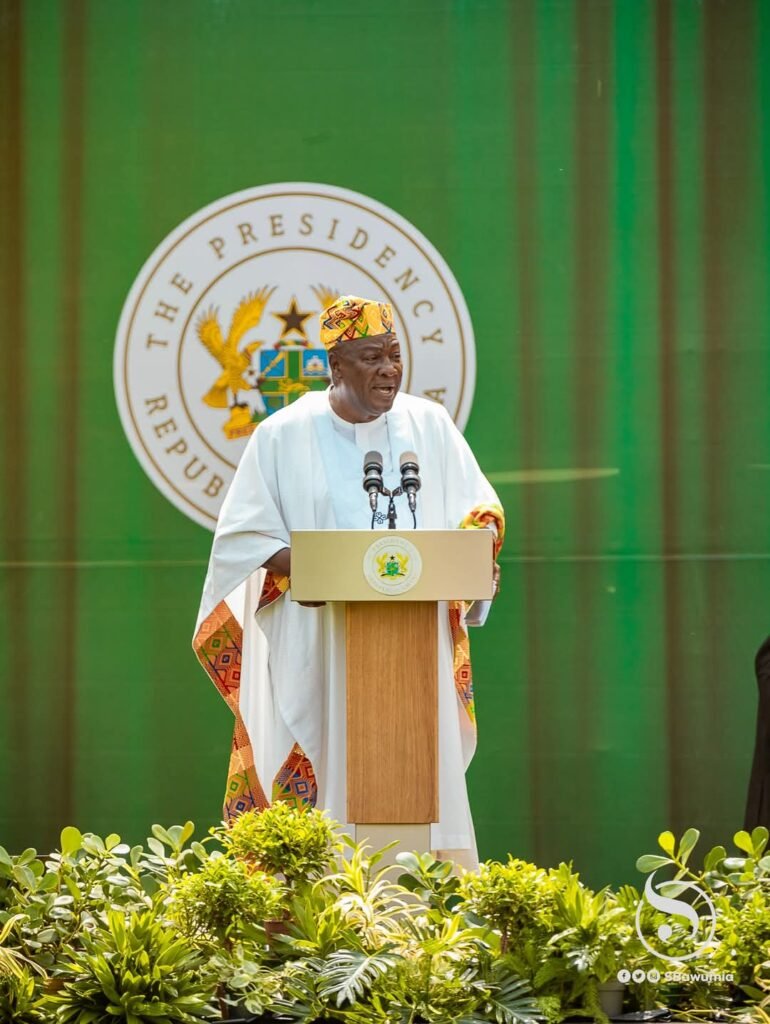Gender
Unique wives honour husbands for their marital commitment

Fifteen distinguished married women have honoured their husbands with gifts to express their love for long and dedicated services and contributions to their stable marriages.
The special event was an initiative of Bishop Dr Ellen Dua-Agyemang Akoto founder of Kings Universal Chapel (KUC) and Mount Horeb Glory Ministry (MHGM) at Odumase- Sunyani.
The celebration dubbed “Couples Appreciation Day” was under the theme “Remember like it’s yesterday’’.
The purpose of the programme was to create the awareness for married couple to understand the need to express their love while the other partner was still alive.
It was also an opportunity for married women to cherish and adore their husbands who had been able to marry them for a decade.
Among other criteria were a husband who practices monogamy, a husband who has been able to educate the children to the tertiary level and other responsibilities.
The longest couple had married for 56 years and the freshest among the 15 couples was only three months in marriage.
The crowning of the ceremony was the Diamond Award given to a couple who had been married for 60 years and given birth to 12 children out of which nine had survived.
The man, Mr Emmanuel Kwame Obiri is now 96 years while the wife Mama Esther Kyeremaa, is 80 years.
Bishop Dr Dua-Agyemang Akoto addressing the gathering said “Most often a sweet tribute is read after the death of the husband to show that he was the best when he was alive.”
She said this platform was to enable spouses to express their love in a form of presentation of gifts to appreciate their husbands irrespective of the challenges they had encountered.
She said that gift was a language to express love and respect to the receiver.
Bishop Dr Dua-Agyemang Akoto said she would be reaching out to as many married couples as possible so that such an event could address some marital issues.
She noted the event was going to be organised twice in a year during Christmas and Easter festivities and the target group would be middle age and old couples to share their love stories for others to learn and fraternise since they have limited outing activities.
She called on well-meaning Ghanaians who have interest in sustaining and reconciling marriages to bring out the beauty in both Godly and socio-economic perspective to collaborate with her vision in achieving this feat.
The Dwantoahemaa of Sunyani Nana Boah Boahemaa applauded the initiative and indicated that it would help complement the efforts of the traditional authority in solving disputes.
Other women also presented gifts to special men who had made positive impacts in their lives.
Gender
Trapped in Limbo: Teenager girls caught between consent and marriage laws

A child according to Ghana’s Children’s Act, 1998, is any person below the age of 18 years and it clearly states that the best interest of the child shall be paramount in any matter concerning the child.
Again, it says the best interest of the child shall be the primary consideration by any court, person, institution or other body in any matter concerning the child.
According to Section 14 of the Act, ‘no person shall force a child to be betrothed, be a subject of a dowry transaction; or be married’.
The minimum age of marriage of whatever kind, it stated, shall be 18 years.
Ghana’s minimum age for sex
However, Ghana’s minimum age of consent to sex is ‘16’ years old. At this age, an individual is considered legally old enough to consent to participate in a sexual activity.
Ghana’s statutory rape law is therefore violated when an individual has consensual sexual contact with a person under age 16.
At the age of 16 years, most children in the part of the sub-region depend on their parents or guardians for their wellbeing-education, physiological needs (food, shelter, clothing, other basic necessities), and health needs among others.
When such a child, especially a female is legally permitted to consent to a sexual activity, it then means the child ‘should’ be able to take responsibility for whatever may be the effect of the sexual activity.
Disregard for loopholes in age consent to sex
A position paper on harmonising the age of sexual consent and the age of marriage in Ghana by the Ministry of Gender, Children and Social Protection and UNICEF Ghana, states that despite the concerns arising from the disparity in age of sexual consent and age of marriage, it is noted that there have been limited legal interventions.
So far, it said attention had been on the campaign to end child marriages and much consideration had not been given to the age of sexual consent in the country.
In Ghana, sex is not a topic that is easily discussed in the open. The socio-cultural dynamics between parents and their children make it difficult for children to discuss their sexuality freely with older members of their family.
Exacerbated by the ubiquity of social media, the result is that many young children and adolescents learn about sex from peers, internet sources and experimentation. If a child is too young to marry before the age of 18, is he/she old enough to have sex at 16 years?
In their consultations, they found out people were far more willing to accept boys’ interest in sex as natural, than teenaged girls’ interest, which was regarded as wayward, and symptomatic of some deficiency in a girl’s upbringing or in the girl herself.
Statistics
In Ghana, many adolescents aged 15 to 18, whether married or not, have had sexual intercourse, according to the United Nations Population Fund report in 2016.
Additionally, 12 per cent of girls and nine per cent of boys have had sex before the age of 15 and statistics further show that 10 per cent of teens under 15 years are having sex.
A survey conducted by the Ghana Demographic Health (GDHS) in 2008 revealed that 44 per cent of young people have sex before age 18 and most initiate it at age 15.
According to the Ghana Statistical Service, between 2008 and 2014, the percentage of men and women between the ages of 25 and 40 who reported having sexual intercourse at age 15 decreased only one point, from 12 to 11 per cent (GSS 2015).
Furthermore, it has been estimated that four in 10 Ghanaian women and two in 10 men aged 15–19 have had sex before. (Alan Guttmacher Institute, 2004).
Experiences of survivors
In an engagement with Martha Asante, a 17-year old school dropout, she said: “I got pregnant at 16 and was forced to drop out of school. If the age of consent to sex was 18, I might have avoided this situation.
Since we were taught in school you can have sex at 16, I just gave in to a man who showed interest easily.”
Another, Naa Lamiokor Tagoe, a survivor of a child marriage, says: “I was married at 17 and had to endure physical and emotional abuse. If the legal age of marriage was enforced, I might have been spared this ordeal.”
Expert’s concerns
Mr Abdulai Jaladeen, the Upper East Regional Director of the Commission on Human Rights and Administrative Justice (CHRAJ), at the celebration of the International Day of the Girl Child in Bolgatanga, appealed to the Gender Ministry to lead the crusade for a memo to be sent to Parliament for the law to be amended.
The delay in reviewing the age of consent to sex, he said, allowed culprits of child sexual abuses to go scot free. “When an adult impregnates a child at the age of 16, the law can catch up on you, but some of these people go behind to influence parents and even the victim.
And once the girl appears before a judge, and says I consented, the judge and prosecutors cannot do anything,” he noted.
Mr Jaladeen explained that if the law was changed from 16 to 18, men who fell foul to the law against girls below the age of 18 years would be punished fairly no matter the culprit’s financial and social standing.
He also called for a review of the Children’s Act to give stiffer punishment to people who give their girls out for early marriages to serve as deterrent to others, adding that the fine of GH¢500 for convicting an offender of the law was too minimal and suggested that a provision that spelt out modalities be made to compel the culprit to ensure that her education was not halted.
Dr Ndonwie Peter, National Executive Secretary of Girls Not Brides-Ghana, a network of non-governmental organisations, said the results of early sex at 16 was pregnancy, which truncated the education of girls as they were in many instances forced to cohabitate or marry those responsible for impregnating them.
He explained that the harmonisation of such laws to peg the minimum age of girls consenting to sex at 18 years, would help to control the increasing rate of early and forced marriages.
Challenges
Problems associated with child sex before marriage is intimate partner violence, sexually transmitted infections, adolescent pregnancy, early childbirth including unsafe abortions and infringements on their sexual and reproductive health and rights. The sexual relation involving a child usually occurs between her and an adult.
Therefore the older persons often take advantage of the girls and give them little or no room to negotiate for safe sex.
The WHO states that at 16 years or lower, the biological constitute of the girl might pose as a threat to childbirth and girls who engage in sexual activities are more likely to get pregnant, a condition that puts them at risk of experiencing stillbirths, miscarriages, eclampsia, puerperal endometritis, and systemic infections.
The babies might also suffer preterm birth, low birth weight due to young maternal age at birth, and severe neonatal condition. Many teenagers at age 16 engage in sexual intercourse not for procreation, but out of curiosity or for the fun of it and aside its consequences, the teenage mother may not be prepared for marriage or be legally permitted to marry.
To avoid shame, the parents of the female children may force their daughters to marry the man who impregnated them.
The situation is more common in the coastal communities and the Northern part of the country, where the pregnant girl is forced to live with the man responsible and/or his family, reports have stated.
Ghana as a country that is hungry for growth with all parties involved such as government, civil society organisation, development partners and donor agencies, parents, students, religious and traditional leaders, the media as well as legal practitioners, need to analyse carefully if an addition to the population through unwanted pregnancies by children is positive and should be encouraged.
If a child born of a child is not well taken care of due to inadequate finances, that child becomes a burden on society and the government at large. They gradually join the large population to depend on the fewer resources, and thereby harden the lives of the citizenry much more. -GNA
Gender
President Mahama commits to gender equality, female representation

Ghana has marked a significant milestone in its history with the inauguration of its first female Vice President, Naana Jane Opoku- Agyemang.
According to President Mahama, her ascension to this high office was not just a personal achievement, but a testament to the nation’s commitment to promoting gender equality and female representation.
He said this at the swearing in of both he and the Vice president at the Independence Square in Accra on Tuesday.




He said his administration will also be committed to fostering a nation where gender equality and female representation were cherished and amplified.
“With the inauguration of Ghana’s first female Vice President, we have turned a significant page in our history. Naana Jane’s ascension to this high office is not merely a personal triumph; it symbolises our collective commitment to fostering a nation where gender equality and female representation are cherished and amplified,” he said.
President Mahama also reaffirmed his administration’s commitment to fostering a culture of inclusivity and empowerment in Ghana and described the inauguration of Prof. Opoku- Agyemang, as a powerful testament to the impact of diverse voices in shaping the nation’s future.
That, he said represented a significant step towards breaking the glass ceiling that has long hindered many Ghanaians, particularly women and youth, from reaching their full potential.
He emphasised that his administration is dedicated to enacting policies that empower women and ensure equal opportunities for the youth, regardless of their background.
“We stand committed to enacting policies that empower women and ensure that doors of opportunity swing open for our youth regardless of their background. Together, we will galvanise our efforts to create a society where every Ghanaian can dream, believe and achieve without restraint,” he added.
President Mahama said his administration was committed to fostering a more inclusive, accountable, and innovative society.
Alongside his Vice President, President Mahama pledged to create pathways that uplift every Ghanaian citizen.
By Jemima Esinam Kuatsinu







